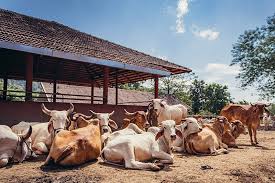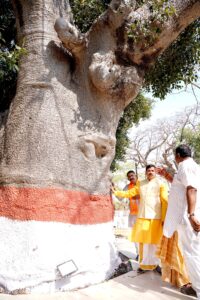
Following the announcement by Madhya Pradesh’s Chief Minister, Dr. Mohan Yadav, the concept of “Vrindavan Village” is set to become a reality in the state. This initiative aims to promote sustainable living, organic farming, and holistic development in rural areas.
Promoting Cow Rearing and Organic Farming: The envisioned Vrindavan Villages will include cowsheds (gaushalas) to promote cow rearing and ensure abundant milk production. These villages will harness solar energy for electricity generation, encouraging an eco-friendly and sustainable lifestyle.
In addition to these efforts, there will be designated playgrounds to promote physical activities among the residents. The initiative also emphasizes the production of “Sri Anna” and horticulture crops, focusing on organic farming methods rather than traditional farming practices. This shift aims to enhance the quality of produce and encourage sustainable agricultural practices.
Implementation Under the Vrindavan Gram Yojana: The Vrindavan Gram Yojana will serve as the foundation for this initiative, with one village from each development block in the state being included in the scheme. These villages will be developed as role models for surrounding areas, demonstrating sustainable living practices and rural development.
Cabinet Approval and Preparations: On Tuesday, preliminary details about the Vrindavan Village initiative were discussed in a Cabinet meeting. The Panchayat and Rural Development Department has already begun working to bring this scheme to life. Chief Minister Dr. Mohan Yadav has issued specific instructions to the department to ensure effective implementation.
Construction of Gita Bhawans in Urban Areas: Alongside the Vrindavan Village initiative, CM Dr. Mohan Yadav has also announced the construction of “Gita Bhawans” in all cities across the state. The Urban Development and Housing Department will be responsible for this project. These Gita Bhawans will serve multiple purposes, including providing study materials to youth preparing for competitive exams and offering space for religious and social activities at concessional rates.
These combined efforts underline the state’s commitment to holistic development, emphasizing both rural sustainability and urban spiritual and educational growth.





